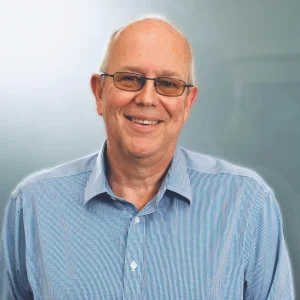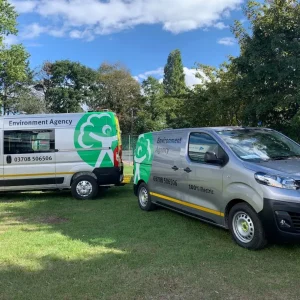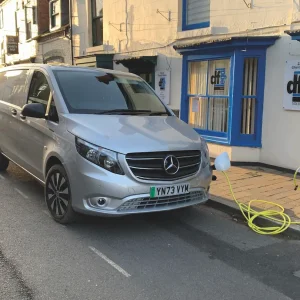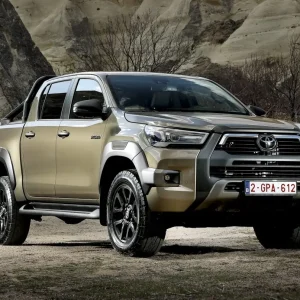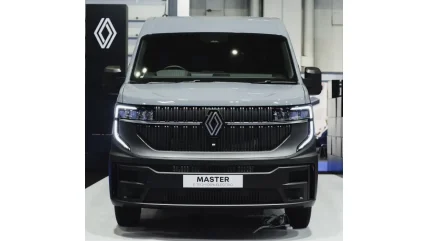
Renault gave a UK debut to its Master E-Tech at the Commercial Vehicle Show as the large van took pride of place alongside the medium-sized Trafic E-Tech and compact Kangoo E-Tech in an all-electric line up.
The Master E-Tech, which Renault says will go on sale “before the summer”, will be offered with a 143hp electric motor and two batteries, at 40kWh and 87kWh. The larger battery will give the van a range of more than 285 miles, according to Renault, which is significantly higher than the maximum 197 miles quoted for the Ford E-Transit and a more modest increase compared to the 261 miles Stellantis claims for its stable of large electric vans from Citroen, Fiat Professional, Peugeot and Vauxhall.
Renault claims a 20% improvement in aerodynamic efficiency compared to the previous Master plus better battery regeneration allowed it to extend the van’s range and set a maximum payload of 1,625kg.
Zakaria Zeghari, Renault’s vice president global sales and marketing for light commercial vehicles, said: “We need less battery capacity than our competitors, the cost of usage will be lower and we have also preserved the payload.”
The Master will also be available with a 2.0-litre diesel engine with outputs of 130hp, 150hp and 170hp.
Renault is producing both electric and diesel versions on the same platform with both having the same dimensions and loading capabilities, according to
Zeghari. He claims this will make it easier for fleet managers to transition from ICE to BEVs.
“It’s exactly the same equipment in every van,” said Zeghari, who added that the new Master will be available in “40 silhouettes” (conversions). He said seven out of 10 Master vans sold are converted in some way.
In the UK the Master will be marketed through the brand’s 45 LCV-specialist Pro-Plus dealerships.
Renault was exhibiting at the CV Show for the first time since the Covid-19 pandemic.
With a new hydrogen Master due to launch in 2025, as a result of Renault’s partnership with Plug Power, to complement the electric and diesel vans, Zeghari said: “It’s a fantastic opportunity to present the new Master and [talk about] our multi-energy powertrains. The idea is not to have one single energy.”
Zeghari acknowledged that accelerating the implementation of the charging infrastructure would “help customers massively” in transitioning to BEVs but added: “With electrification there is no way back.”

